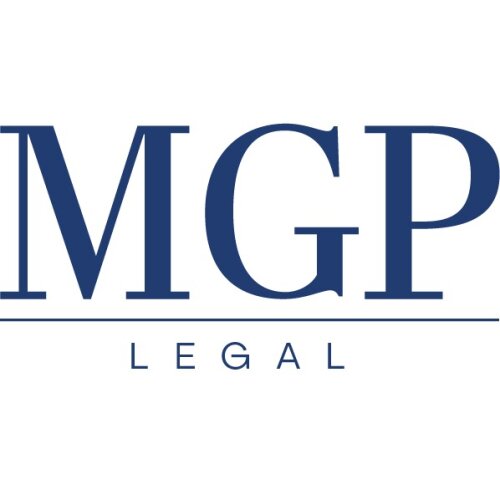Best Nonprofit & Charitable Organizations Lawyers in Florence
Share your needs with us, get contacted by law firms.
Free. Takes 2 min.
List of the best lawyers in Florence, Italy
About Nonprofit & Charitable Organizations Law in Florence, Italy
Nonprofit and charitable organizations in Florence, Italy, operate within a structured legal framework designed to support their activities while ensuring transparency and accountability. These organizations, which include social enterprises, foundations, and associations, aim to provide social, cultural, environmental, or humanitarian benefits. Nonprofits enjoy certain legal benefits, such as tax exemptions, but must comply with Italian civil code regulations and specific financial reporting requirements. Understanding this legal landscape is crucial for ensuring compliance and maximizing the impact of their charitable activities.
Why You May Need a Lawyer
Engaging a lawyer specializing in nonprofit and charitable organizations can be essential in several situations. For example, you may need legal assistance when establishing a new nonprofit entity to ensure that all incorporation documents adhere to both Italian civil laws and local Florentine regulations. Additionally, lawyers can guide organizations through complex tax exemption applications, contract drafting, intellectual property issues, and employment law matters. Legal expertise is also beneficial in navigating regulatory compliance, particularly regarding financial reporting and adherence to governance standards. A lawyer’s guidance helps nonprofits avoid costly legal pitfalls and focus on their mission-driven goals.
Local Laws Overview
Florence, along with the rest of Italy, regulates nonprofit and charitable organizations under the Civil Code and specific legislative measures, including the Third Sector Reform (Codice del Terzo Settore). Key legal aspects include:
- Formation and Registration: Establishing a nonprofit requires registration with the local Chamber of Commerce and drafting a formal statute that outlines your organizational purpose, governance structure, and operational rules.
- Tax Benefits: Nonprofits may benefit from various tax exemptions, provided they pursue activities deemed to be of social benefit and comply with strict financial oversight.
- Financial Reporting: Organizations must maintain thorough accounting records, undergo regular financial audits, and submit annual reports demonstrating transparency and accountability.
- Governance Requirements: Comply with governance provisions, including board composition, decision-making processes, and obligations for transparency and public benefit.
- Employment and Volunteer Relations: Adhere to labor laws when employing staff or utilizing volunteers, ensuring fair work practices and proper insurance coverage.
Frequently Asked Questions
What legal structures are available for nonprofits in Florence?
In Florence, nonprofits can take various forms, including associations, foundations, or social enterprises. Each has specific legal requirements and benefits.
How do I register a nonprofit organization in Florence?
To register, prepare a formal statute, apply at the local Chamber of Commerce, and ensure compliance with Italian Civil Code stipulations.
What tax exemptions are available for nonprofits?
Nonprofits may qualify for exemptions from corporate income tax, VAT reductions, and other fiscal advantages if they meet stipulated criteria for public benefit activities.
How can a nonprofit maintain its tax-exempt status?
Maintain transparency in financial reporting, ensure activities align with public benefit goals, and regularly update relevant authorities with necessary documentation.
What reporting obligations do nonprofits have?
Nonprofits must keep detailed records, perform financial audits, and submit annual impact reports to satisfy governance and financial accountability requirements.
How can we ensure compliance with labor laws?
Consult with legal professionals to establish compliant employment contracts, manage volunteer relations, and maintain appropriate insurance policies.
What governance practices should we adopt?
Adopt bylaws that define board roles, conduct regular meetings, and ensure decision-making processes comply with transparency and democratic principles.
Can we modify our organization’s purpose or structure?
Yes, nonprofits can amend their statutes for legitimate reasons, but changes must be approved by the board and reported to relevant authorities.
What regulations apply to fundraising activities?
Fundraising activities must comply with ethical standards and regulations that prevent misrepresentation, fraud, or exploitation of donor trust.
Where can we resolve legal disputes involving nonprofits?
Legal disputes can be resolved through mediation, arbitration, or, if necessary, the Italian judicial system, often requiring legal representation.
Additional Resources
Several resources are available to assist nonprofit organizations in Florence:
- Regione Toscana: The regional government body responsible for publishing local regulations and initiatives benefiting the third sector.
- CEPAS Italy: A certification body that offers guidelines and certifications for nonprofit organizations.
- Nazionale Forum del Terzo Settore: A national forum advocating for third sector organizations, providing resources and policy updates.
- Local Law Firms: Engaging with local law firms specializing in nonprofit law can provide tailored legal advice and representation.
Next Steps
If you require legal assistance, start by identifying qualified law firms in Florence with expertise in nonprofit and charitable law. Schedule consultations to discuss your specific needs and challenges, and evaluate potential legal partners for their experience, familiarity with local laws, and ability to offer strategic guidance. Additionally, consider attending workshops or seminars on nonprofit law conducted by local associations or universities to enhance your understanding of relevant legal frameworks. Engaging a knowledgeable lawyer from the outset can streamline your operations, safeguard compliance, and ultimately enhance your nonprofit’s ability to fulfill its mission.
Lawzana helps you find the best lawyers and law firms in Florence through a curated and pre-screened list of qualified legal professionals. Our platform offers rankings and detailed profiles of attorneys and law firms, allowing you to compare based on practice areas, including Nonprofit & Charitable Organizations, experience, and client feedback.
Each profile includes a description of the firm's areas of practice, client reviews, team members and partners, year of establishment, spoken languages, office locations, contact information, social media presence, and any published articles or resources. Most firms on our platform speak English and are experienced in both local and international legal matters.
Get a quote from top-rated law firms in Florence, Italy — quickly, securely, and without unnecessary hassle.
Disclaimer:
The information provided on this page is for general informational purposes only and does not constitute legal advice. While we strive to ensure the accuracy and relevance of the content, legal information may change over time, and interpretations of the law can vary. You should always consult with a qualified legal professional for advice specific to your situation.
We disclaim all liability for actions taken or not taken based on the content of this page. If you believe any information is incorrect or outdated, please contact us, and we will review and update it where appropriate.












